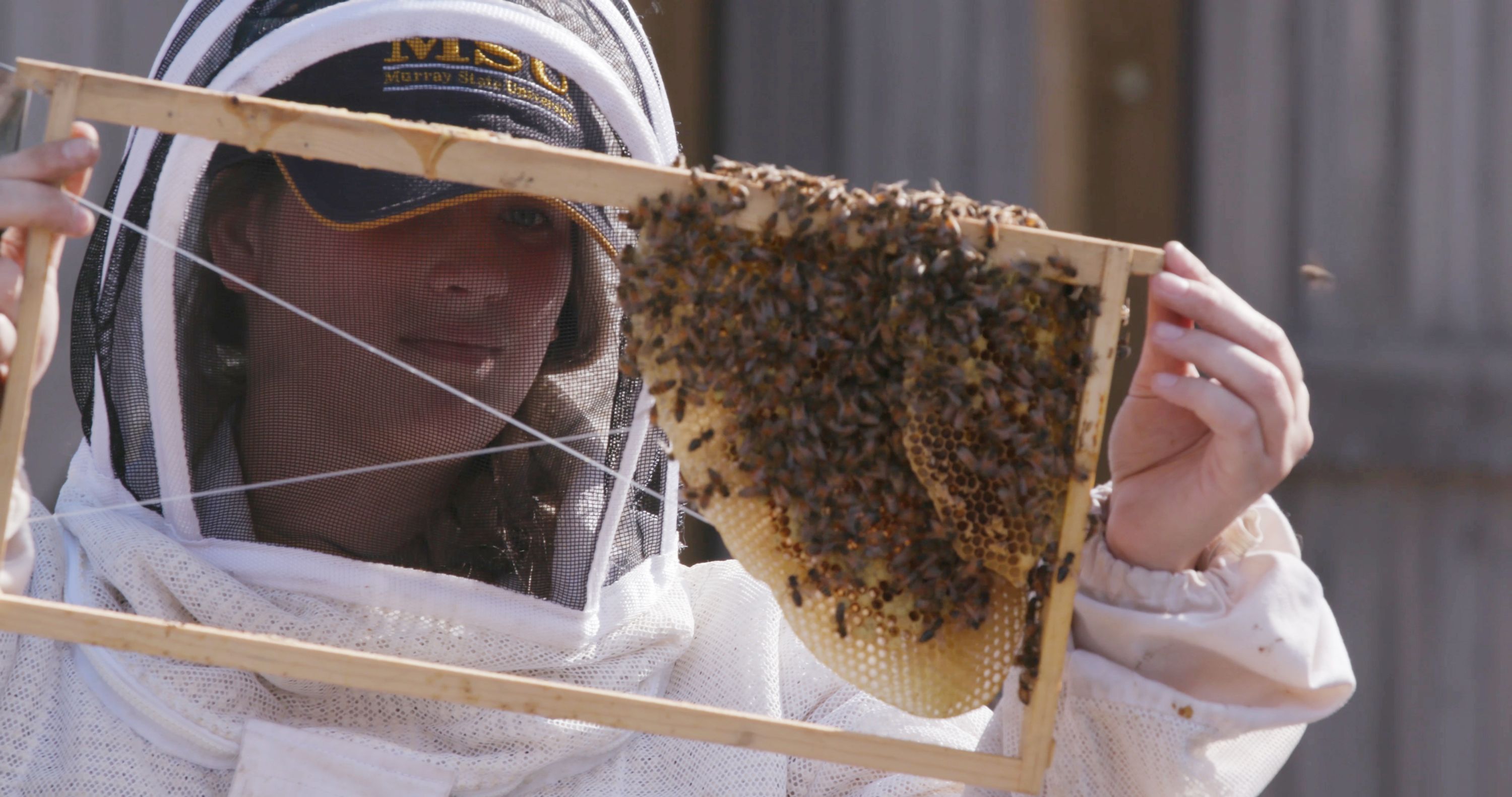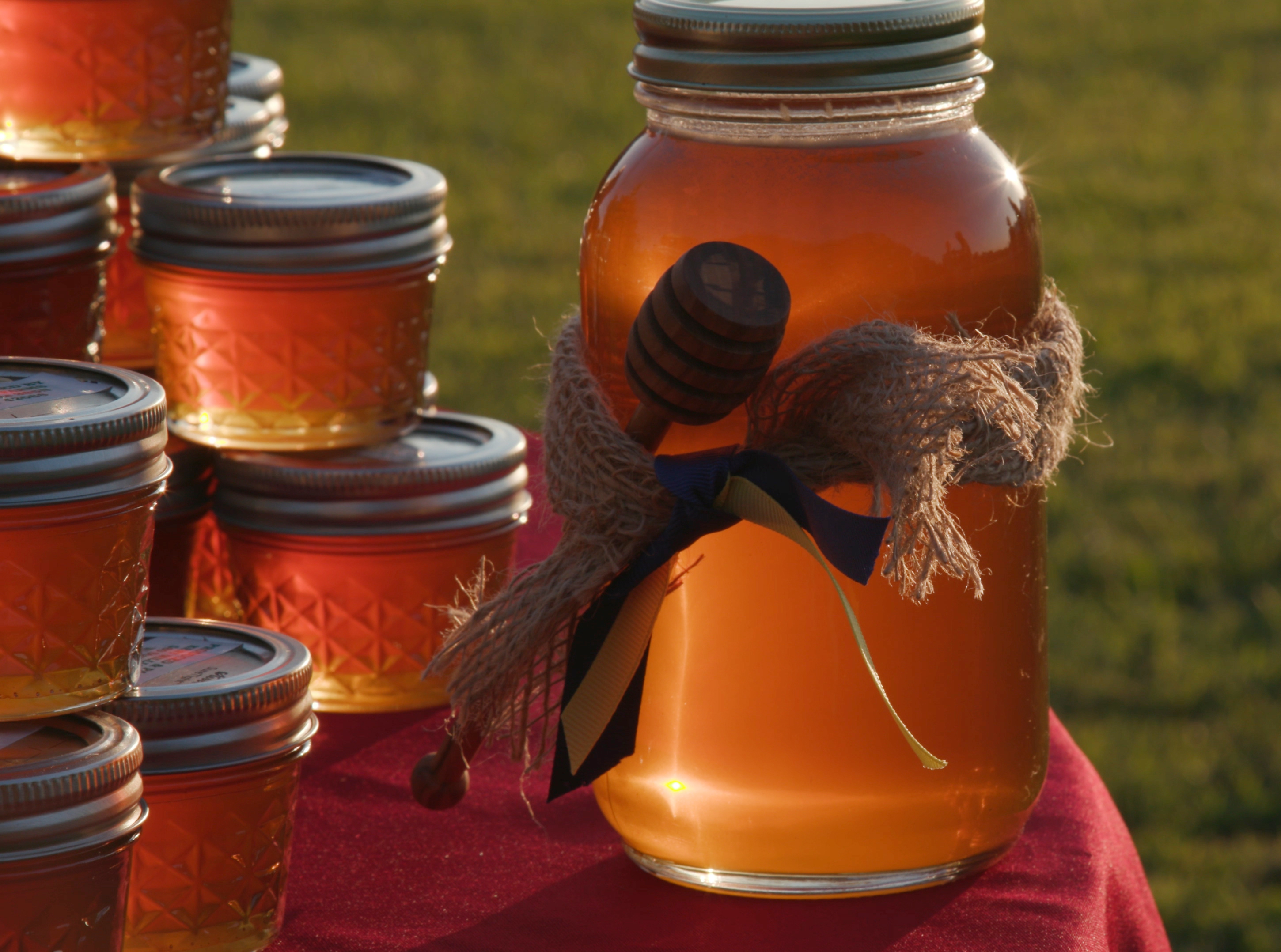Honey Bees: Livestock with Wings
Posted on Dec 5, 2017
The word “livestock” usually conjures up visions of perhaps cattle, horses, pigs, goats or lambs, to name a few, but honey bees may not be one species that is thought of along those lines. However, Merriam-Webster defines the word livestock as, “animals kept or raised for use or pleasure; especially: farm animals kept for use and profit.”
The question then becomes, are bees animals or insects? The beekeeping population says they are technically both. Regardless, the federal government sees bees as animals. In fact, according to information from the American Veterinarian Medical Association, “Honey bees are classified as livestock/food-producing animals by the federal government because products from apiculture enter the human food chain, including honey, propolis, pollen, and royal jelly.”
Looking at bees as more than insects or as the all-important pollinators they are may help more people understand their continued importance to not only the ecosystem but as food providers, as well.
MacKenzie Jones, an agriculture education undergraduate at Murray State University (MSU), has led the way to get an apiary or bee yard constructed at the college to do just that: teach people the importance of bees in all they do including food production.
“In working as an intern at the Kentucky Department of Agriculture and in the State Veterinarian’s office two summers ago, I got my first experience with bees helping with the USDA Honey Bee Health Survey across the state,” she said. “From there, I started thinking about research and what I could do at Murray as part of my requirement in MSU’s Hutson School of Agriculture.”
As a Presidential Scholar, Jones is required to participate in some type of research project and with that initial interest through her internship, she made the decision to begin the process of starting an apiary at MSU’s Pullen Farm.
But first, a fenced area would be needed. With funding somewhat of an issue, Jones travelled to her Franklin County home where, with the help of family took timber from their family farm, milled it into planks and brought back to Murray to construct the fenced area. The bee yard had its start.
From there, Jones, known now as the official University Beekeeper, got her first hives and since then, the project has grown somewhat exponentially to the point of having fourteen hives presently and the hope for more in the future.
Recently, the first honey from the hives was harvested and marketed as Racer Honey with the first jar being auctioned at the recent Hutson Harvest Gala. Thanks to a generous bidder, that first jar sold for $250.
In her efforts to get the apiary at Murray started, Jones recognizes how important it is to educate the public about honey bees, not only as pollinators but as food producers.
State Apiarist Tammy Horn Potter agrees and has made a career out of teaching the public about bees. She said it’s good to see a younger generation like Jones picking up the torch and carry on a tradition that has been around for centuries.
“One of the things we say in the beekeeping world is, a healthy hive is one with overlapping generations. For me, to see MacKenzie taking the lead on this, I began to see a younger generation answering the need,” she said. “We have so many challenges in the apiculture world, we don’t always know how to handle those challenges and certainly we need young leaders to pick up the mantle and she has done that admirably.”
In meeting these challenges, there also comes opportunity. Potter said that there is a huge demand for honey in this country, one that far exceeds production levels.
“The U.S. consumes more honey than any place else in the world. We consume on average 400 million pounds of honey and we can only produce 150 million pounds each year,” she said.

With the recent hurricanes and wildfires in other parts of the country, Potter said honey is likely to become more difficult to get and more expensive in the short term.
This demand for honey can mean opportunities for small and larger producers alike to supply a market short of domestically produced honey. But Potter also sees it as a chance to educate beekeepers on ways to keep their hives healthy so the honey keeps flowing and the bees keep doing all they do for the environment and the food chain.
Potter also reminds the consumer that this imported honey comes from places that don’t have to adhere to federal FDA guidelines as do food producers in this country.
“It’s a concern for me, as the state apiarist, that our country imports so much honey, in particularly because I think Kentucky has unique honey of its own,” she said. “If we did more education and outreach, then we could meet that gap in the market. Kentucky could have more of a good, marketable product that would be healthy for consumers and also help set up a beekeeping industry here in our state.”
As it is, the beekeeping here is still a cottage industry making it difficult to compete with the lower prices of imported honey, emphasized Potter.
Despite these challenges and those of keeping bee hives healthy, Potter and Jones feel like recognizing bees as great food producers as well as pollinators can lead to a bigger industry and a more informed consumer.
Potter noted one other positive attribute of our honey bee population in that 70 percent of all wildflowers depend on honey bees for pollination.
“That seems to get left off of people’s radars but flowers, to me, are food for the soul,” she said.
Comments